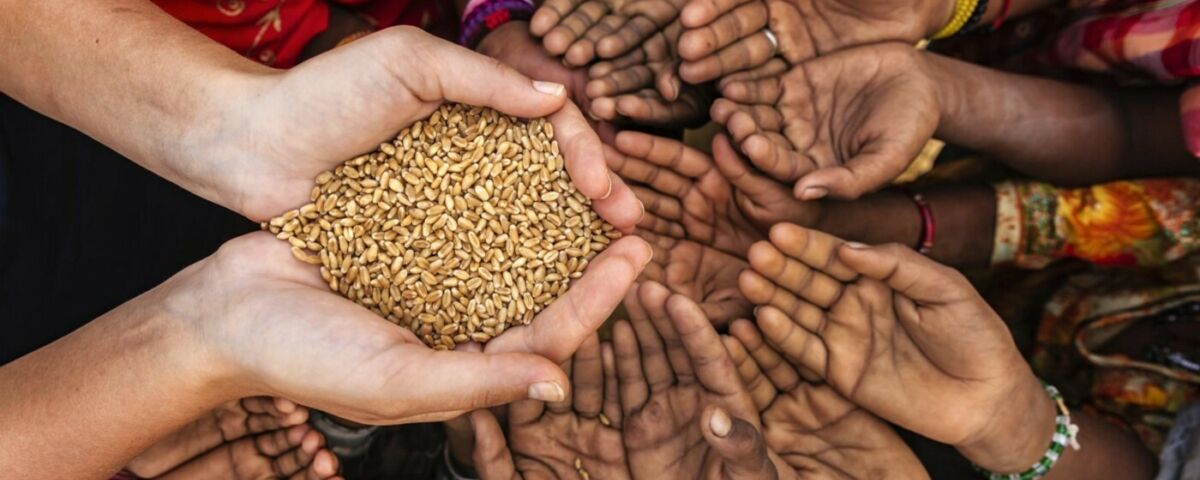


Keep this story going! Share below!
Fred Meyer is a local grocery store that is working to end world hunger (SDG#2) by supporting food banks, schools, and community centers in their local communities.
They are also contributing to responsible consumption (SDG#12) by reducing products thrown into landfill and turning unsold produce into compost.
Their commitment is a world with Zero Hunger. They believe they have the size, scale, expertise, and local connections to tackle this challenge. Associates, generous customers, and partners are the ones making the significant progress for Zero Hunger. Their plan is to end hunger in our communities by 2025. The innovation goal is by establishing a $10 million innovation fund, aiming to give 3 billion meals by 2025 in the USA, donating not just more food but more balanced meals, achieving prior goal to be zero waste company by 2025, and creating communities around local business.

It is about “seeing a positive change in the environment” as a mission. Nearly 42 million Americans in the United States- one in eight struggle with hunger. Kroger's plan is to eliminate hunger and the zero waste action plan aims to change those numbers. The motivation was to end waste, inspire change, advocate, transform, and build stronger communities within the nation. They believe everyone should have access to affordable, fresh, and nutritious food which inspired them to form zero hunger and zero waste.
Fred Meyer has impacted many communities around Washington and aims to have no waste by 2025. Doing so, they donate weekly on food products that are a week away from expiration. Not only does this help the community but also reduces waste in landfills. Kroger states that 42 million Americans suffer from hunger and over 38 billion food goes to waste. Kroger states since the beginning of Zero Hunger and Zero Waste, they have dropped 20.7% in reducing landfill waste. The number one form of reducing it is by donating as much food as they can to local communities, public schools, the Salvation Army, and local food banks in Fred Meyer locations. Fred Meyer offers a community reward and this reward offers points for customers to have an affordable price for products. The more you spend, the more discounts you get on good products. Kroger made 46 million dollars just through their community rewards program. These funds are used throughout all stores to help local communities. Recently in 2021, Fred Meyer/Kroger has impacted society by attempting to eliminate these 42 million hungry people in the US. Recently, Kroger donated to Seattle and provided 2.5 million community meals through the Hunger Relief & Food Security Program.
Fred Meyer, recently (in March of 2022), has a new program called Loop. This program is launched to help reduce plastic waste and help the environment. What this offers is it helps you buy products that then can be washed out and returned. When returning reusable products, you receive a refund amount which in the future will allow you to get free products with all your purchasing added. Fred Meyer's goal is to “reduce climate change” so inspiring people to return reusable products will help maintain a sustainable world for the greater good of the future.
Kroger/Fred Meyer aims to reduce Greenhouse gas emissions by reducing the amount of electricity used in stores. Kroger/Fred Meyer is installing window glass on rooftops so when daylight hits the usage of light is very limited. In addition, the usage of refrigerators is also a way they attempt to reduce emissions. Kroger/Fred Meyer aims to have modern refrigerators in all stores. These New modern refrigerators will keep products cooler for a long time but also reduce energy consumption. Investing in new technology will help the company achieve there 2025 goals, but also invest more money towards zero hunger.
Not only helping the community is a business benefit but also Fred Meyer benefits as a business on sales. They provide great discount deals towards their rewards and also attract people to buy from them in areas such as gas. Every dollar spent with Fred Meyer earns you a point to receive multiple discounts. Every $100 dollars spent gives you a discount on fueling your vehicle. Even receiving amazing discounts on purchasing multiple bundle products. This has helped Fred Meyer, not only keep their business running but also attract more customers towards their affordable prices. Kroger reported that they received from all stores a total of $46 Million. All these funds are invested into employment benefits and back into the community.
Fred Meyer, being owned by Kroger, has helped the environment in many ways by changing its products and going more green towards the future of health problems. Kroger Health aims to help kids' futures and reduce health problems like running a Diabetes Prevention Program (DPP) that is designed to help people lead a healthier life. Participating in a DPP can reduce the risk of developing type 2 diabetes by more than half. Kroger offers nutrition specialists with support from an expert personal coach, the program helps build new, healthy habits through practice over time. Another way Kroger is trying to be environmentally friendly to the world is by using what the world provides like using the sun as a form of light in stores, reducing emissions of electricity bills and using that money towards fresh products.
Get stories of positive business innovations from around the world delivered right to your inbox.
Dillen Genson, Human Resource Manger

Fred Meyer is a grocery chain in the Pacific Northwest that serves customers and community. They are a subsidiary of Kroger, the nation’s largest grocer with nearly 2,800 stores in 35 states operating under 28 different names. Each of these different operations around the nation have their own form of helping the community.